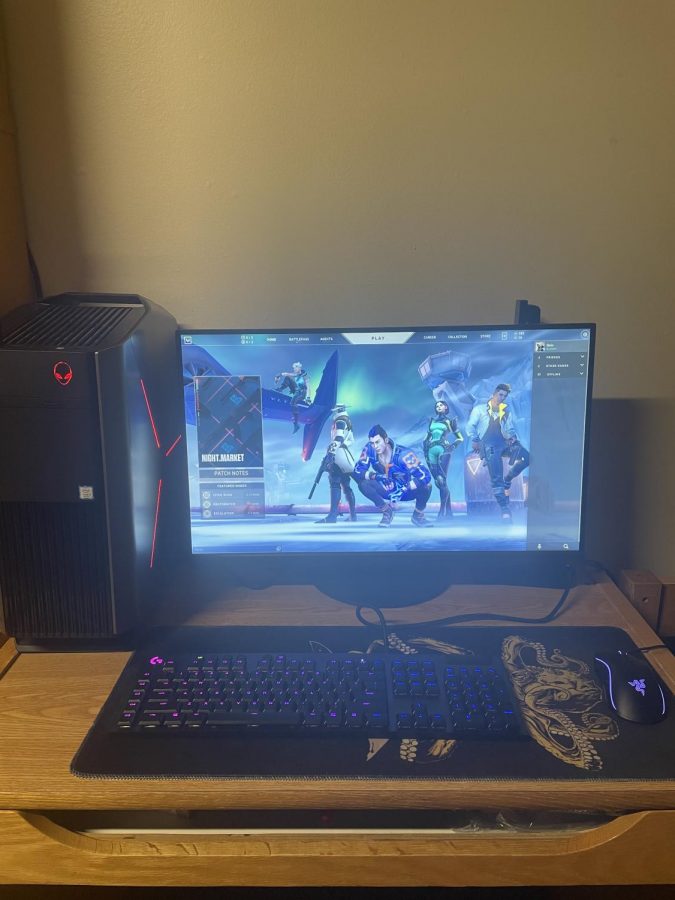When most gamers think of a 5v5 tactical first-person PC shooter game that involves planting and defusing bombs, their mind usually wanders to “Counter Strike: Global Offensive,” a game that has been on the market for nearly a decade.
However, a new challenger has proven to be a worthy competitor to CS:GO, and it goes by the name “Valorant.”
Starting as just a small research and development project at Riot Games in 2013, it was recently released this past June after being worked on for almost eight years.
According to a video game database article released in June 2020, during the progression of the game’s development process, Riot Games promised that although the game may follow the same objective as CS:GO, the game would “stay true to the high-consequential gameplay of other competitive tactical shooters with the addition of unique character abilities that create and open tactical opportunities.”
This meant that, unlike CS:GO, players would have to rely on specific character abilities to use to their advantage during the best-of-30 match that consists of either stopping the opposing team from arming a bomb or planting the bomb and stopping the your opponents from diffusing it.
About a month before the game was released, Riot Games allowed a two-month beta-testing period for 25,000 people who watched and listened for beta codes via social media and through Twitch streams.
Two of the 25,000 people selected to participate in the beta happen to be heavily involved in Marquette’s very own “Valorant” team through the Marquette Gaming and Esports club.
First-year Alec Dahms, and captain of the “Valorant” team, reflected on his “Valorant” beta experience.
“I did a lot of the closed testing with my friends … and I started playing it a lot more and started getting better at it than I ever thought I would be,” Dahms said.
Dahms was not on campus at the time, so when he got to Marquette, the Gaming and Esports board were looking for “Valorant” players to start the first team.
One of Dahm’s “Valorant” teammates, sophomore Gavin Johnson, had a different road that led him to the team.
“I have this friend who is on the ‘Rocket League’ team … for esports at Marquette and he told me that (the Esports club) was making a ‘Valorant’ team this year and he saw me playing ‘Valorant’ and told me that I should join Marquette Esports,” Johnson said.
When the game was finally released in June, about a month after the beta ended, Riot Games had not done much to change the overall experience of the tactical first-person shooter.
“There wasn’t much that was changed, I think it was just some gun balancing and some ability balancing stuff,” Johnson said. “There weren’t any major changes that I remember.”
The more that Dahms and Johnson reflected on “Valorant,” the more the two made comparisons to CS:GO.
“‘Valorant’ and CS:GO have similar gunplay,” Johnson said, which mean that the gun shooting and mechanics stay the same
While the games have many similarities, Dahms said there was a learning curve when it came to figuring out the character’s abilities. Dahms said these abilities are exclusive to different characters and can produce many tactical and lethal advantages, such as a smoke grenade effect which can blind enemies, or Molotov cocktails that can burn opposing players if walked on.
Marquette’s “Valorant” team has been competing in league play against other teams since mid-October. The team is currently 3-8, but the squad is making a comeback, as the team has won three out of its last five matches.
Dahms said that the team is currently participating in the “College Star League,” the biggest esports league for collegiate play in the country. Marquette’s “Valorant” team has a nontraditional, non-BIG EAST schedule, since the only team they have played from the BIG EAST is DePaul.
Both Dahms and Johnson said they want to stay primed to participate in local area network tournaments against other teams for this next season.
“I hope that in the future, we’re able to do more tournaments before the next season starts and get pretty far in them,” Johnson said.
Johnson, a computer engineering student, stated that his biggest strength is making big plays that shift a game’s momentum toward Marquette. As the captain of the “Valorant” team, Dahms wants to make sure that he “doesn’t get too rusty” when long breaks occur, such as winter break, which stretched from Nov. 22 to Jan. 19.
Dahms also expressed that he wants to meet his teammates more when COVID-19 restrictions are lifted.
This story was written by Jack Lewandowski. He can be reached at jack.lewandowski@marquette.edu or on Twitter @JacklewMu.


